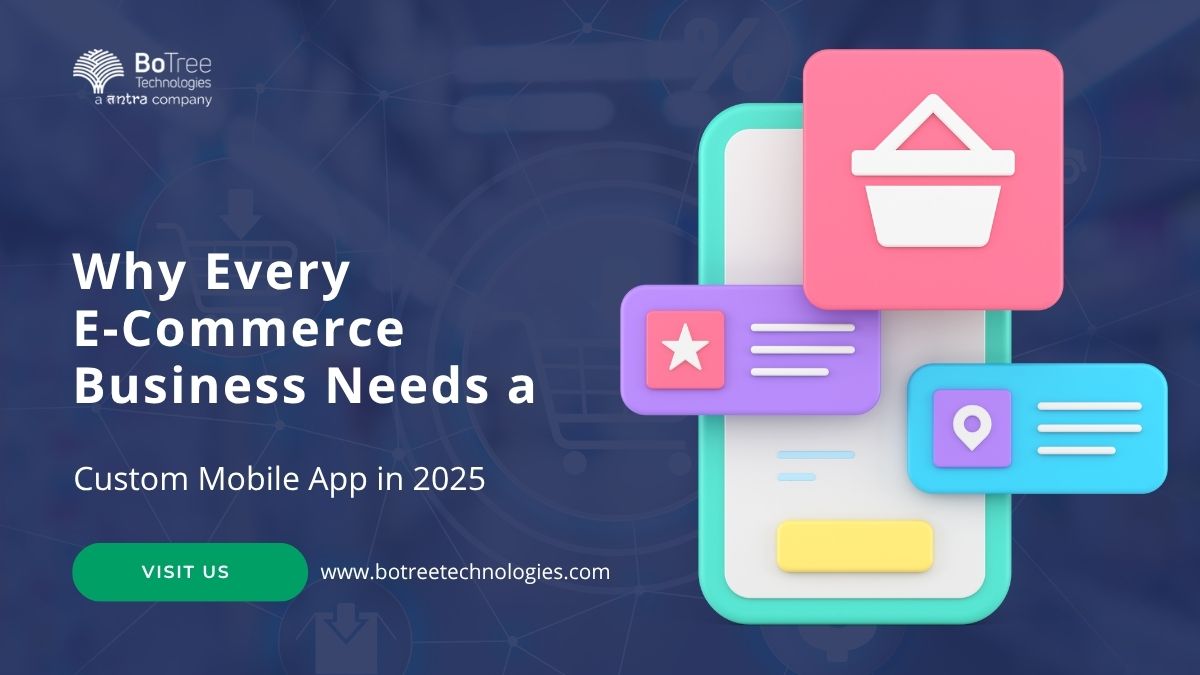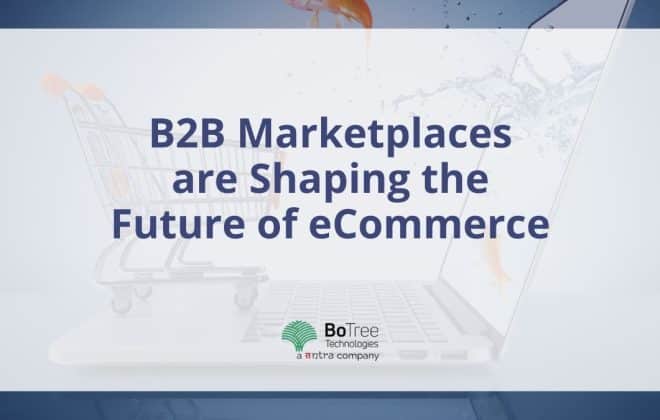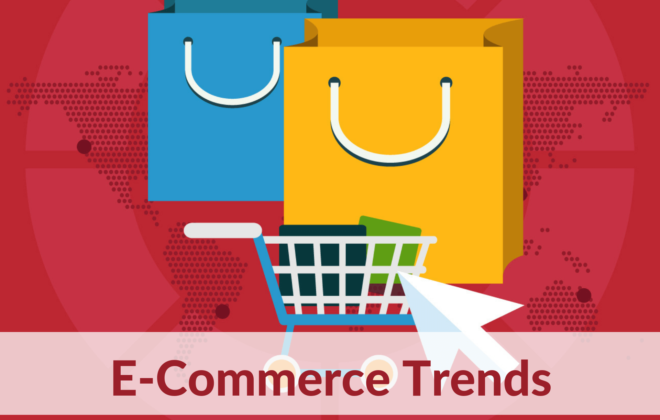
Why Every eCommerce Business Needs a Custom Mobile App in 2025
In 2025, having an online store without an app is not an option. The apps are higher on conversions; push notifications and access to offline information surpass websites. From AI-recommendations to AR-shopping, social apps can have the greatest personalization in the world. Mobile-friendly websites still stand but by adding access to mobile apps, the sale, and trust of the business are maximized. Voice commerce, AR try-ons, and AI are the talk of the future; without investing in an app right now, you could be left behind, so this is the moment to lift your game!. Continue reading to learn more.
Given the rapid evolution of the digital commerce landscape, businesses that don’t stay ahead of the curve will be left behind. Ecommerce for mobile apps is not a choice – it’s a requirement. Gone are the days when consumers were satisfied with a slow, clunky mobile website; they expected a smooth, fast, smooth, and customized shopping experience, which is available in the only eCommerce mobile app that is custom-built.
In fact, mobile commerce sales are expected to represent 60% of all eCommerce sales by 2027. That’s not merely growth – it’s a seismic shift in consumer behavior. Without a Mobile App for eCommerce, you miss out on a huge revenue stream that competitors with apps are already exploiting.
In this deep-dive, we’ll discuss: Why eCommerce mobile applications outperform websites, meaning beneficial stats, how to develop one, and why it is the best time to invest in eCommerce mobile app development services.
1. The Rise of Mobile Commerce in 2025
1.1 Mobile Shopping Trends and Consumer Behavior
According to a study by Business of Apps, a whopping 73% of shoppers prefer using apps because of their speed, convenience, and personalized features. This is not merely a preference – it reads across to higher sales. Research indicates that a mobile app for ecommerce converts at three times the rate of mobile websites – further proving that an app is an absolute must-have if you want to maximize revenue.
What is so great about eCommerce mobile applications that consumers love them? Three key reasons:
- Speed – Apps almost load instantly, while mobile sites often get significantly slower due to network conditions.
- Personalization – AI-powered recommendations and optimized promotions enhance the shopping experience.
- Push notifications – They deliver 50% higher engagement than email marketing (Leanplum), bringing customers back.
1.2 Why Mobile Apps Are Dominating E-Commerce
The war between the eCommerce mobile apps vs website is an uneven battle. Apps win on every front:
- App local storage = Fast performance – Apps store the data locally and are responsible for reducing the load time.
- Higher Retention – Users are spending 90% of their time in mobile apps, so they become the best channel for their repeat sales.
- Better Conversions – Features such as one-click checkout and saved payment details lead to lesser cart abandonment.
If your business is still using only a mobile-optimized website, you’re literally going to compete with one hand tied behind your back.
2. The Key Benefits of Having a Custom Mobile App for Your E-Commerce Business
2.1 Boosted Sales And Conversions
The direct revenue generation factor makes eCommerce mobile app investment one of the compelling reasons. Research has shown that cart abandonment rates go from 70% on mobile websites to 20% in apps. This dramatic improvement comes from streamlined checkout processes, stored payment methods, and fewer distractions.
2.2 Improved Customer Engagement and Retention
Customer retention is much cheaper than acquisition and mobile apps do a great job of getting users back. For example, 26% Users who receive push notifications within three months of opting-in have 3 times higher retention rates.
Apps enable hyper-personalization possibilities that websites simply can’t offer, from custom discounts, wishlist tracking and even leveraging artificial intelligence to suggest products. These features enable a stickiness that keeps shoppers coming back – something that mobile websites have not been very good at delivering.
2.3 Enhanced UX and Performance
You can maximize speed-by-definition in custom eCommerce mobile apps. Whereas mobile websites rely on browser performance and internet speeds, apps store critical data locally, allowing for instant access to product catalogs and consistent navigation.
In addition, custom apps by an ecommerce development company are capable of integrating advanced features such as AR try-ons, which boost conversions, or AI chatbots, that help shoppers make a decision in real-time. These innovations are tough – if not impossible – to achieve on a mobile site.
2.4 Ability for offline access and quicker checkouts
Another one of the most underrated benefits of an eCommerce mobile app? Offline functionality. Users can browse the products, read the description and even add to cart without the internet-features which are not possible with that of a mobile website.
Apps allow one-click checkouts and payment details stored securely, taking the friction out of re-entering data. This convenience is the primary reason apps convert at far higher rates than mobile sites.
3. Custom E-Commerce Mobile App vs. Pre-Built Solutions
3.1 Why Go for Custom Development?
Pre-packaged eCommerce mobile app solutions can be attractive initially because their upfront costs are cheaper, but the trade-offs are limited customization options. However, a custom app by an ecommerce web development company comes with:
- Unparalleled Scalability – A custom app can grow along with your company.
- Custom Branding – Stand out from the competition with a custom interface.
- No Code Integrations – Integrate with current eCommerce website development services, ERP solutions, and CRM platforms.
Essential Features for a Competitive eCommerce App
To keep up with the trends, your eCommerce business mobile app must have:
- AI-powered Product Recommendations – Increases sales by a decent margin.
- Augmented Reality (AR) Shopping – Allows users to see items before purchasing them.
- Multi-Language & Multi-Currency Support – Required for worldwide sales.
- Voice Search & Chatbots –Improves accessibility and customer support.
4. Building Your eCommerce Mobile App: Key Considerations
4.1 The Development Process
Building an eCommerce mobile app with high performance is a detailed procedure for a custom software consulting services partner.
In this stage you will work on:
- Planning & UX Design – Define user flows and key features.
- Choosing the Right Tech Stack – React Native, Flutter or native iOS/Android development
- Collaborating with a reputed e-commerce app development company – Make sure you check for experience in Magento mobile apps, WooCommerce apps, and Shopify integrations while making the final choice.
- Test & Launch – Verify superb functionality for every device.
4.2 Understanding the Cost
Depending on the complexity of the app, the eCommerce mobile app development cost varies:
Minimum Viable Product (MVP): $30,000 – $70,000
If you know nothing, here’s a quick breakdown for the best ecommerce apps:
Basic App (Static iOS, Android, WP): $20,000+.
Development App (Detailed App, Uses Backend, Dynamic Content): $50,000+.
Advanced App (AI, AR, Custom Features): $100,000+.
Platform Choice: Price may vary depending on different platforms such as iOS, Android, or bothIntegrationsDesign complexity Custom development demands a larger upfront capital expenditure, but the long-term return on investment offsets that cost.
4.3 Finding the Right Development Partner
Not all eCommerce mobile app development companies are equal. Your pattern has to be like a partner:
- Demonstrated Expertise – Review case studies and client feedback.
- Long-term Support – Maintenance post-launch is critical.
- Transparent Pricing – Stay away from companies with any hidden costs.
5. E-Commerce Website vs. Mobile App: Which Comes First?
5.1. When a Website Should Come First
However, an eCommerce website development base remains imperative for:
- SEO & Organic Traffic – Websites perform improved on search engines.
- Wider Reach – Not every user will instantly download an application.
5.2 When to Build an App First
If repeat purchases are critical to your business (e.g., fashion, groceries or subscription services), a mobile app for eCommerce should be one of your priorities. Apps have better retention and sales using push notifications, loyalty programs, and faster checkouts.
5.3 The Best of Both Worlds: Substitute
The most powerful brands combine a website with an app for a complete omnichannel approach. Users, for instance, may learn about products on Google (desktop) but pay for goods faster in the app.
6. The Future of eCommerce Mobile Apps
6.1 Emerging Trends
- AI Shopping Assistants – A customized, conversational shopping experience.
- Voice Commerce – Estimated to reach $40 billion in 2026 (Juniper Research)
- AR/VR Shopping – Try-before-you-buy and 3D product views.
6.2 Why You Should Act Now
Mobile shopping trends are growing faster, and eCommerce mobile app development early birds have become the early adopters. The longer you wait, the more ground you’re ceding to competitors who have balanced the scales and have already embraced mobile-first commerce.
Conclusion
If you’re serious about eCommerce growth, a custom mobile app for eCommerce business isn’t optional – it’s essential. You get higher sales and maximum revenue. A custom mobile app by a software development company can help you reach audiences that you never thought were possible earlier.
Are you ready to build a custom app for your ecommerce business?
Partner with a trusted eCommerce mobile app development company like Tntra, and start building your app today to future-proof your business.
FAQs
Is it worth it to build a mobile app for your business?
Definitely. Apps are three times better than traditional websites in creating conversions, customer retention as well as furthering a speedy and personalized sales process. If you need to remain competitive, you need an app for your business.
Is it better to build an app or website first?
Start with those few websites for the mobile version as SEO will be an advantage; after its development, one also needs an app for repeat customers to enhance engagement. Integration is the right solution for both.
Why should eCommerce businesses go with custom mobile app development?
Already created solutions are never as flexible as there is no standardization. A complete e-Commerce app assigns that brand with a unique feature together with scalability supporting that scalability from AI fronting shopping recommendations to AR shopping accepting frontend – very crucial in surviving the 2025 competition.
What is the key difference between a mobile app and a regular eCommerce site?
An online business app takes advantage of its system’s ability to transmit Push Notifications to generate the highest achievable User Experience compared to Mobile Web Pages.
What is the most customizable eCommerce platform?
Each of the Shopify Plus, Magento, and WooCommerce platforms are capable of deep customization, but going for a custom-built app assures an infra-structural control that supports unique branding and functionality.




